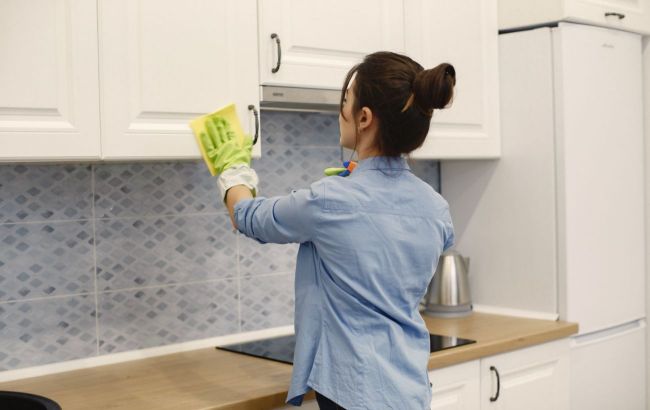6 important kitchen tips and rules to follow
 Illustrative photo (Freepik)
Illustrative photo (Freepik)
The kitchen might be the dirtiest place in the house. Bacteria lurk everywhere, even where you least expect it, multiplying rapidly and causing various illnesses, according to Berezhy Sebe (Take Care of Yourself - ed.) medical community.
Microbiologist and candidate of medical sciences Olena Livinska said that cleanliness is good, but sterility is not actually beneficial. Moreover, it is impossible to achieve.
When we try to disinfect surfaces around us, some bacteria indeed disappear, but others - more resistant and possibly more dangerous - always come back.
Therefore, it is not worth getting carried away with disinfectant products. Instead, plain water or soap (if needed) will be enough. There is no need to purchase all those products that promise to "kill all bacterian and microbs."
What to consider
Special attention should be paid to raw meat, fish, and eggs - they should always have separate utensils and boards, which should then be thoroughly washed with dish soap.
In their raw form, these products may contain potentially dangerous microorganisms, including fecal bacteria. This is facilitated by the conditions of obtaining and processing meat, eggs, and fish.
Put these products in separate dishes when making food, and then thoroughly wash those bowls, containers, etc.. There is also no special sense in washing meat before cooking, as bacteria will still not wash off from it, instead, they will spread more on the surfaces.
Danger of mold
The signs of mold we see on products are very small parts of a large mycelium that has already grown on bread, vegetables, or a jar of sauce. Cutting off the affected piece is not an option because the fungal part of the moldy product is significantly larger.
If the jam has "molded," the entire jar should be discarded. This is not only unappetizing but also can be dangerous, as some strains of mold produce toxins that can cause poisoning.
Change kitchen towels frequently
Depending on the level of activity in our kitchen and the products we deal with, kitchen towels can become dirty in a very short time.
Everyone usually wipes their hands on not always thoroughly washed kitchen towels, especially when dealing with eggs, meat, and fish. All the bacteria remains on there, which is why it is so important to wash the towels frequently.
Dry and regularly change kitchen sponges
1 cubic centimeter of sponge can contain 7 times more microorganisms than people living on the planet.
Sponges are always wet and contain food residues. Therefore, kitchen sponges should be regularly changed (at least once a week), well washed, and, most importantly, dried: the sponge should not lie wet at the bottom of the sink.
Clean the fridge regularly
It is important to regularly dispose of stale and spoiled products, especially those containing mold.
The temperature in the refrigerator is low enough to significantly slow down the reproduction of most microorganisms.
After disposing of spoiled products, they should be cleaned up to prevent mold spores from spoiling other products.
Quality spices from reliable suppliers
Spices are often a source of microbiological contamination. They may contain heavy metals and foreign substances.
You should be careful about the origin and appearance in which they are sold. Give preference to spices that undergo pre-treatment. This is especially relevant when adding spices to ready-made dishes.

